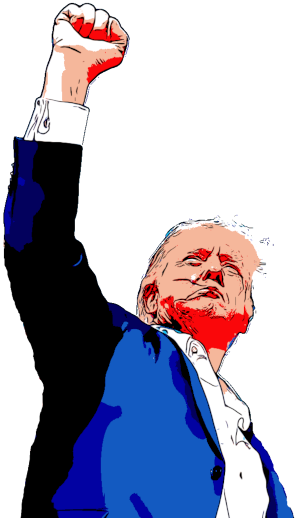Trump's Potential Influence on Turkey-Israel Relations Amid Erdogan's Anti-Israel Rhetoric
Amid escalating tensions between Turkey and Israel, former President Donald Trump’s potential influence on the situation has come into focus following his recent communication with Turkish President Recep Tayyip Erdogan.
Turkish President Recep Tayyip Erdogan’s recent call for the destruction of Israel during Eid al-Fitr prayers has intensified the already strained relations between the two nations. This provocative statement, made at the Çamlıca Mosque in Istanbul, drew sharp criticism from Israeli officials, including Foreign Minister Gideon Sa’ar, who labeled Erdogan an antisemite and a danger to the region. The Turkish Foreign Ministry responded by rejecting these accusations, defending their stance on the Israeli-Palestinian conflict and criticizing the Netanyahu government’s actions.
Amidst this backdrop, former U.S. President Donald Trump’s recent phone call with Erdogan on March 21 has sparked discussions about his potential role in mediating or influencing the situation. Trump administration officials have hinted at the possibility of lifting restrictions on defense contracts with Turkey, including the reinstatement of Turkey’s participation in the F-35 program. This move could significantly impact Turkey’s military capabilities and its relations with NATO allies, including Israel.
The tensions between Turkey and Israel are multifaceted, extending beyond Erdogan’s support for Hamas, which carried out a brutal attack on Israel in October 2023. Turkey’s backing of other groups like Hayat Tahrir al-Sham in Syria has further complicated the geopolitical landscape, raising concerns about Ankara’s role in fostering instability near Israel’s borders.
Domestically, Erdogan faces significant challenges, with widespread protests erupting over the arrest of Istanbul Mayor Ekrem Imamoglu and other authoritarian measures. These internal pressures may be influencing Erdogan’s aggressive rhetoric against Israel, as suggested by Jonathan Schanzer of the Foundation for Defense of Democracies. Schanzer noted that Erdogan’s support for Hamas and other controversial groups could be a strategy to deflect attention from domestic issues.
As a NATO member, Turkey’s actions and statements have broader implications for regional security and international alliances. The U.S., under Trump’s potential influence, could play a crucial role in navigating these complex dynamics. The outcome of Trump’s engagement with Erdogan could either escalate or de-escalate the tensions between Turkey and Israel, depending on the direction of U.S. policy towards both nations.

